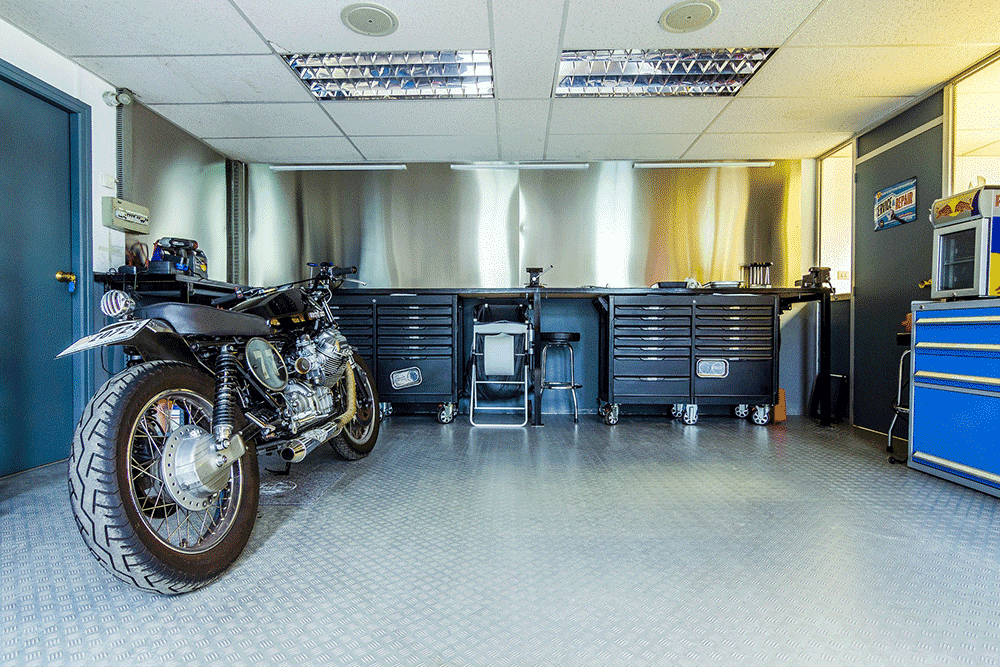
 Storage Tips
Storage Tips8 Things You Should Never Store in an Attic, Garage, or Basement
Almost everyone puts things in their garage, attic, or basement that may be damaged by being in stored those areas of the home. From hot attics to damp basements, many people do not know how bad this is until they open up the boxes later and find everything destroyed. Protect your belongings save some money by storing these items in a climate controlled area.
Here are eight things you should never store in either your attic, garage, or basement.
8 Things You Should Never Storage in Attic, Garage, or Basement
- Paint Cans
- Furniture and Items Made of Wood
- Canned Foods
- Books and Paper Documents
- Electronics
- Refrigerators
- Treasured Family Photos
- Other Large Appliances
1. Paint Cans
When painting the home it is a good idea to keep a bit of the leftover paint for touch-ups that may be needed in the future. Taking this extra step is of no help if the paint is stored in a place that makes it unusable. Paint is negatively affected by high temperatures in the summer and ruined by freezing cold temperatures in the winter.
Storing a can of paint in contact with a floor made of cement will make the can more likely to rust. The best way to store paint is above the floor, such as on shelves. It is better to store paint cans in a dry environment where the temperature stays cool but does not get below freezing.
2. Furniture and Items Made of Wood
Excessive humidity will destroy wood. It makes it more susceptible to warping and rotting. Moreover, if storage conditions are too dry, this may cause wood to crack. The worst choices for storing wooden furniture, or other valuable items made of wood, are places where there are extreme temperature changes and high humidity. Wood may not do well in an attic, garage, or a basement.
Changes in humidity levels cause the wood to swell and then contract. This may cause cracks. Temperature changes can negatively effect fine wooden finishes. It may change the color of stains, lacquer, and cause fine lines to appear that degrade the smoothness of varnishes.
3. Canned Food
Food storage requires the use of special, sealed containers and climate-controlled conditions to keep it from being ruined. Containers have to be very durable to avoid being attacked by pests, such as rodents. Rodents can chew through plastic and even cement. Using metal, food-grade containers is necessary to prevent this problem. Garages attract pests because they are looking for food, and they want to get out of the cold during winter.
Temperature variation that goes below freezing in the winter and rises in the hot summers will destroy food even when it is packed in cans and glass jars. Jars may break and cans may explode when subjected to extreme temperatures.
4. Books and Paper Documents
Excessive humidity creates conditions that allow mold to grow. Books and other documents are easily destroyed by moisture. A book is somewhat like a sponge in that it absorbs moisture from the air. The damage may include curled pages, a warped book spine, and damage caused by the problem of mold. Excessive moisture can also lead to "foxing" which is when a book's pages turn brown.
5. Electronics
Humidity is the enemy of electronics. When the equipment is in service, there is some heat that occurs from its operation, which causes any internal moisture to evaporate. When an electronic item is put away in storage, the humidity can cause moisture to collect inside. This moisture may cause corrosion and/or rust to the internal components, which may cause damage.
High heat may cause any plastic parts to warp. Temperature fluctuations, which are extreme, can cause delicate internal parts to go out of alignment and cause electro-mechanical failures. For example, if the disk-reader head goes out of alignment on a DVD player it may stop functioning.
This includes batteries as well. Be sure to take the batteries out of any toys or electronics before placing them in storage. This will prevent corrosion on your electronic devices. More importantly it will protect all your items in case the temperature fluctuation causes batteries to catch fire or explode.
6. Refrigerators
Many families store a second refrigerator in their garage to store excess food and beverages purchased in bulk. What can be used as a cost saving measure could cost you. In warmer climates, refrigerators stored in non-insulated garages take more power to run and causes more stress on the motor. This additional stress means your refrigerator won't have the long life it would have had if it was stored inside your home. In fact, many factory warranties will not cover appliances that are stored in garages, basements and outside due to the harsh environment.
Speaking of harsh climate, refrigerators may rust when stored in an excessively humid environment. If the doors are closed while the unit is off, mold may quickly form inside a stored refrigerator that is difficult to clean and remove later. You can read more about proper appliance storage on our blogs.
7. Treasured Family Photos
Photos and family photo albums may be treasured family heirlooms. Excessive humidity is very damaging to photos. If they are kept in stacks, humidity can cause the photos to stick together. When trying to pull them apart, the photos may get damaged. Just like books and documents, photos can curl up and become damaged by mold. Photos need to be stored at a consistent temperature and that's why it's not recommended to store photos in a basement, attic, or garage.
8. Other Large Appliances
Clothes-washing machines and driers may not operate properly when exposed to freezing temperatures. Washing machines may have some residual water left inside that if it freezes may cause internal parts and pipes to break. Low temperatures may cause the condenser in the drier to malfunction. Humidity can affect the internal electronic parts and may cause rust and mold.
All type of modern appliances including freezers, microwaves, ovens, toasters, and others can be negatively impacted by being stored in a humid environment or places with extreme temperature changes. Especially with the door closed. Just like refrigerators, humid weather and powered off appliances don't mix. Keep your appliances mold free by propping open the door or removing it completely when in long term storage.
Take an Extra Step to Protect Your Belongings
It is important to take precautions when storing any of these items, and many more, in areas that have severe temperature changes and high humidity. It is a much better idea to store them in a climate-controlled environment. A climate-controlled self-storage unit provides a nice temperature range that avoids the extremes. They typically have a dehumidifier system that helps the unit by removing excessive moisture from the air.
We're Your Storage Solution!
Storage Rentals of America is your convenient self-storage solution. So come into our office or give our storage experts a call at 1-800-457-5678. Our call center is available 7 days a week and can help determine which storage unit size best fits your storage needs.



